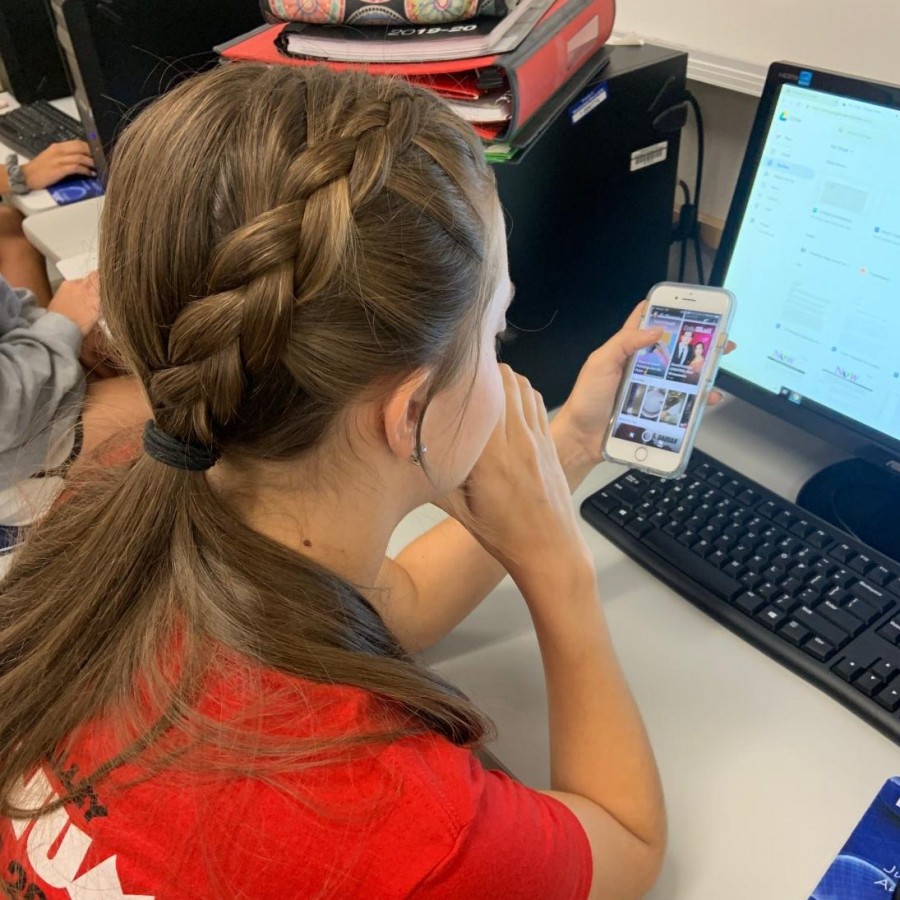Contrary to popular belief, screen time does not lead to mental health.
Among the nation, there is a credence that smartphones are harming the next generation, causing a sharp increase in teen depression, anxiety and suicide. Yet despite all the talk, there is no solid proof on whether screen time causes mental health illnesses in young generations.
It is not clear what is causing these issues to occur, but there is is a very prominent possibility: technology has changed the way children interact. Digital technology has been significantly changing the way kids interact with others, which might be leading them to a greater level of stress and isolation.
The fundamental idea for these concerns is that time spent on digital devices negatively impacts youth; kids lose face-to-face interactions, choosing lower quality experiences such as Snapstreaks instead.
However, it is evident that children and teens are not going to stop utilizing social media anytime in the near future, and a new study suggests they might not need to.
Today, teens are TikTok fans; tomorrow, a new social media platform could impact teen culture. If researchers want to find a true connection between screen time and mental illness, they are going to have to gather more data on the activity done on teens’ phones, and not simply just the time spent on them.
Younger generations are also exposed to the lives of others, making it easy to compare and set expectations. Dr. Bernadka Dubicka, chair of the Royal College of Psychiatrists, said, “One reason why this may be is that comparing your life on social media to the ‘perfect lives’ of others could be having a bad effect on your mental health.” Dubicka displays the causation of social media activity and mental health.
Mental health doesn’t have to include solely negative effects. For example, associations found that adolescents who sent more text messages had fewer depressive symptoms. Those who spent more time on technology for school purposes reported symptoms of hyperactivity. Those who spend the most time on technology creating their own content may actually have better mental health, which is reasonable when considering the creativity aspect of it.
The main purpose of media nowadays is for the satisfaction of fitting in and staying connected. Alexandra Hamlet, clinical psychologist at the Child Mind Institute pointed out, “The more superficial it is, the less likely it’s going to cause you to feel connected, which is something we all need.” The increased rate of depression among younger generations can be seen as evidence that the connections users gather electronically are less emotionally satisfying, leaving one to feel socially isolated.
The anxiety students feel while simply walking in the hallways or speaking publicly could be a result from the use of social media. Senior Anthony Cox said, “Social media and the sites or programs younger generations use may trigger something in their brain, eventually leading to mental illnesses.” With unlimited access to a wide range of information among media, teens feel engaged with the technological world.
In all, the widespread public attention to the negative implications of technology use due to screen time isn’t truly backed by any real science.









